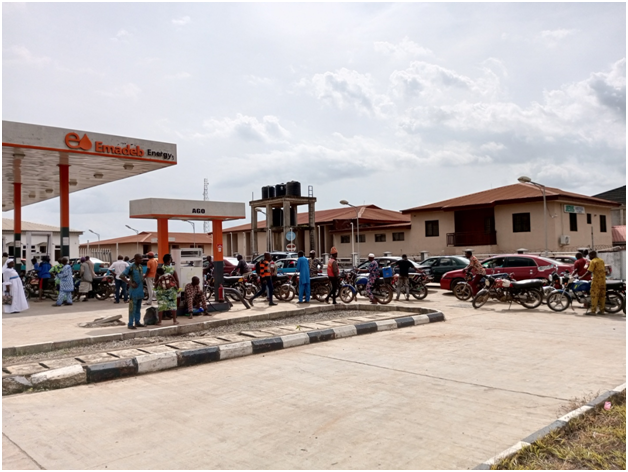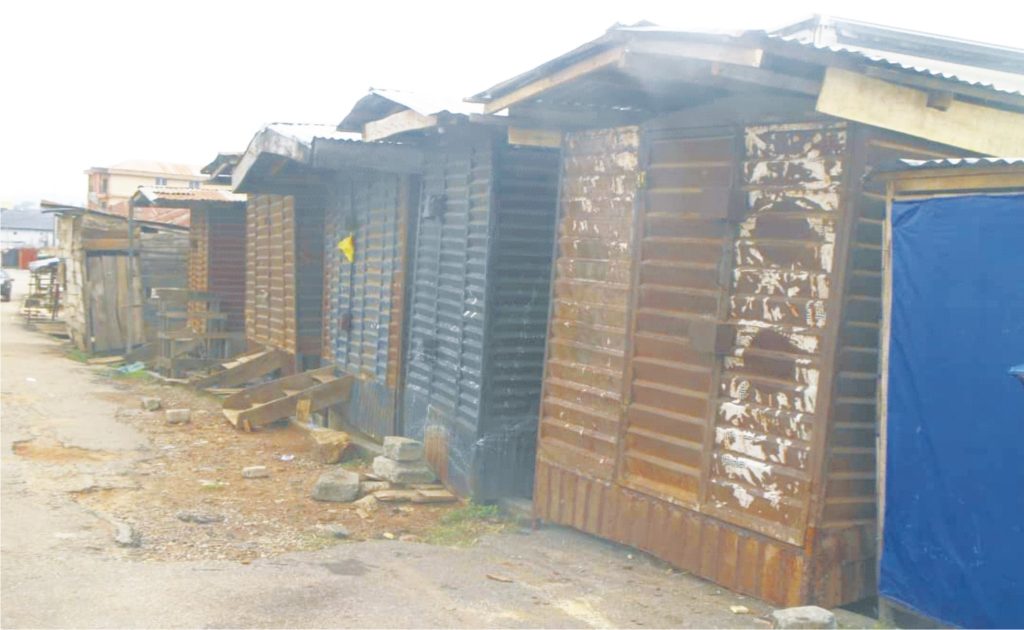Crude oil theft: Impact on Nigeria’s economy
By Babatunde Ayedoju
|
Made up of three major ethnic groups with hundreds of others, Nigeria started as an agrarian society. Then, the western region produced cocoa, while the north was known for groundnuts, with oil palm coming from the east in large quantities.
The narrative changed in 1956 when crude oil was discovered in Oloibiri, Bayelsa State. Almost immediately after independence, Nigeria was ushered into the Organisation of Petroleum Exporting Countries (OPEC), an organisation that comprises oil producing countries.
In the 1970s, Nigeria experienced oil boom. Nigeria’s fortune in the oil and gas industry increased. That led to a shift in the mainstay of Nigeria’s economy from agriculture to crude oil. Today, crude oil boasts of generating at least 85 percent of Nigeria’s foreign exchange earnings.
Unfortunately, with the oil boom and the attendant prosperity came the menace of oil theft also known as bunkering. The term bunkering encompasses all acts involving oil theft, including diversion and smuggling of oil and unauthorized loading of ships. One common process requires tapping into an oil pipeline and transporting the oil elsewhere to be sold internationally or refined locally. In order to access the oil, a small group of welders will puncture a pipeline at night, establishing a tapping point from which the group can operate.
Oil spills and explosions are regular occurrences in the Niger Delta. Pipeline vandalism from bunkering leaves pipes, especially, vulnerable to leaks, spills, and major accidents. Royal Dutch Shell PLC claims that 70 percent of all oil spills over the last five years were the result of sabotage to their facilities. In 2011, the United Nations Environment Program found out in Ogoniland, Rivers State, that oil pollution had devastated mangroves, contaminated soil and groundwater, destroyed the fish habitat, and posed a serious threat to public health. The study concludes that it could take up to thirty years to restore Ogoniland. However, oil theft has continued unabatedly and a solution does not seem to be in sight. The degradation to the environment has reduced land arable for farming and has devastated fishing communities. Two third of the local population does not have access to clean drinking water and many have reported oil in drinking water sources.
On the economic side, according to the lead story in ThisDay Newspaper of December 30, 2021, Nigeria recorded 193 million barrels of crude oil deficit in 11 months, meaning that an estimated $3.5 billion revenue was lost to crude oil theft in 2021. That was about 10 percent of Nigeria’s foreign reserve.
According to a report by the National Extractive Industries Transparency Initiative (NEITI) in July 2021, in 2019, Nigeria lost 42.25 million barrels of crude oil to oil theft, valued at $2.77 billion. That was an improvement on the 2018 record where Nigeria lost 53.28 million barrels.
The deficit has hindered Nigeria’s oil quota in the Oil Producing and Exporters Countries (OPEC) from reaching at least 1.8 million barrels per day (mbpd).
A research anchored by a professor of History at the University of Port Harcourt (UNIPORT), Ben Naanen, revealed that Nigeria bleeds between N30 trillion and N60 trillion loss every year to oil theft, illegal refining, and pipeline vandalism.
The research team leader, Professor Naanen, further disclosed that 200,000 barrels of crude oil or 14 per cent is stolen every day out of the 1.4 mbpd produced in Nigeria. He however admitted that other sources in recent times have put it at 30 per cent or some 470,000 bpd.
At the price of over $100 per barrels with one dollar exchanged at about N411 in the official market, the loss is between N8.2Bn and N17bn per day, making it between N30 trillion and N60 trillion loss per year.
The professor stated that with about 14 per cent of Nigeria’s crude oil production being stolen, the country’s petroleum-dependent economy faced a clear and present danger. “About 30 percent of the stolen crude goes into artisanal refining mainly for the local market while the balance is exported.
Crude oil theft is not limited to Nigeria, though. According to a media report, the highest level of oil theft and diversion occurs in countries that have the most oil. Both Azerbaijan and Mexico, with a few differences, look a lot like Nigeria. In Mexico, fuel theft is on the rise as criminal gangs look for ways to lessen their dependence on earnings from narcotics trafficking. In 2006, state oil company, Pemex, reported that the country’s pipeline system had been tapped by oil thieves 211 times. But in the case of Mexico, it’s gasoline – not crude oil – that’s stolen.
The Hope spoke with some economic experts about the impact of these activities on Nigeria’s economy and the way out.
Professor Bayo Fatukasi from the Department of Economics, Adekunle Ajasin University, Akungba-Akoko noted that oil theft is illegal and anything that is illegal will definitely have a negative impact on the economy.
His words: “According to Kyari, the Group Managing Director of the Nigerian National Petroleum Corporation (NNPC), Nigeria has lost about three trillion naira to the illegal appropriation of oil, an average of 200,000 barrels per day. According to the latest data from OPEC, I think we are on 1.8 million barrels per day quota, but the NNPC boss said that we are only able to supply either 1.2 or 1.4 mbpd. So, we are losing 0.4 or 0.6 mbpd. Multiply that with whatever the current price of the barrel is. So, we are losing out and this is not unconnected with the poverty level in the nation.”
While stating that it takes someone who is learned in oil and gas exploration to carry out bunkering, Fatukasi pointed out that it is wrong for people to live close to the location of oil exploration.
He said, “I spent about 16 years abroad. In advanced countries like Russia, Norway, Austria, Ukraine and even Saudi Arabia, nobody lives 60 to 100 km around the site of crude oil facilities, but here in Nigeria some pipelines even run through people’s homes. Nobody should live around these facilities. It’s even dangerous to the health, but here in Africa people claim that the area is their ancestral home. Therefore, they will not want to relocate.”
As a way out, the professor of Economics said that the government would have to intensify its surveillance activities, stating that “I remember the federal government awarded a contract to some companies sometime ago but it is expensive to maintain. A lot of sophisticated gadgets are required.”
Similarly, Dr Chris Ofonyelu, also from the Department of Economics, Adekunle Ajasin University, Akungba-Akoko, said that oil bunkering has been fueling free money, illegality and thuggery in the Niger Delta where the illegal activity is rampant.
He said, “For the local economy, hotels, business centres and social centres are boosted because people spend the free money recklessly. Because the money is free and the business is illegal, those who venture into it reinforce themselves with some kind of criminality. Therefore, there is a possibility of social unrest like it happened in the past.”
Ofonyelu recommend that the government should demonstrate strong will power and devise a means to curtail the activities of perpetrators.










